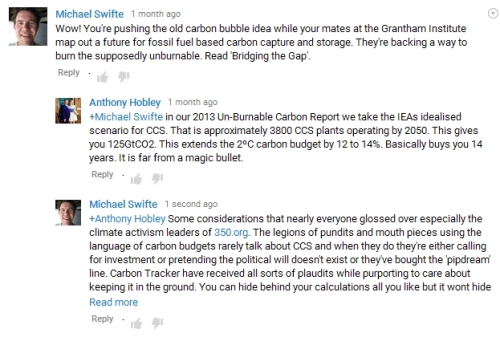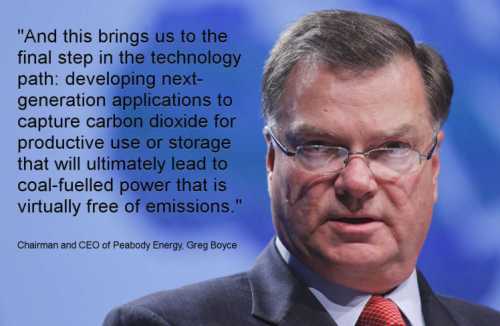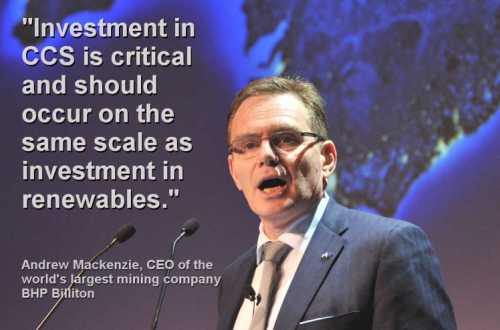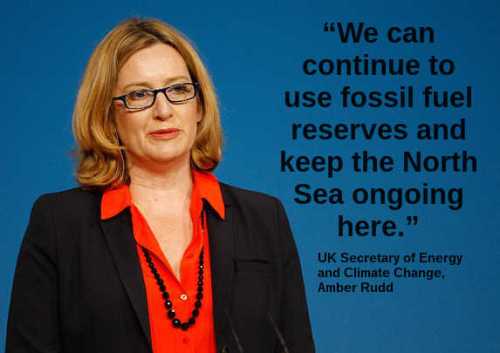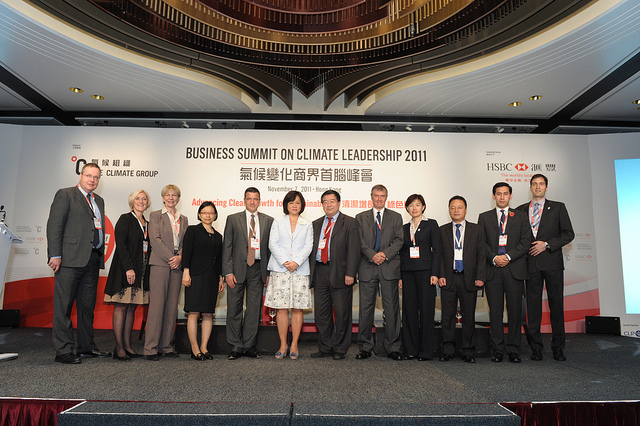Jun 27
20171
Avaaz Carbon Tracker CDP (formerly the Carbon Disclosure Project) Ceres Here Now (Purpose) IKEA privatization Purpose TckTckTck (GCCA) The B Team The Climate Group The Financialization of Nature The Prince of Wales’s Corporate Leaders Group (CLG) WBCSD We Mean Business
“100 Billion for Everyone Who Signs” [McKibben’s Divestment Tour – Brought to You by Wall Street [Part XVII of an Investigative Report]
June 27, 2017
By Cory Morningstar
Part seventeen of an investigative series
The B Team
The B Team was incubated by Virgin Unite, the foundation arm of Richard Branson’s Virgin Group, which had previously incubated such organizations the Elders and the Carbon War Room. In October, 2012, Branson and Jochen Zeitz (ex-CEO of Puma) announced the formation of The B Team. It has since grown to include 23 “leaders” [1] including Kathy Calvin, President and CEO of the United Nations Foundation, Paul Polman, CEO of Unilever, Andrew Liveris, chairman and CEO of Dow Chemical, Mary Robinson, Secretary of The Elders and President of the Mary Robinson Foundation for Climate Justice, Ratan Tata, Chairman Emeritus of the Tata Group, Christiana Figueres, former Executive Secretary of the United Nations Framework Convention on Climate Change (UNFCCC) 2010-2016, and several others of elite status. [Source] [Full List]Mary Robinson (a staunch believer in carbon markets) and Mo Ibrahim[3] were two of those involved in the inception of The B Team. Ibrahim is the British Sudanese entrepreneur who excels in the undermining of Africa and her leadership, “for no other reason than to force African leaders to submit to Western economic and political ideology”. [“Today, Mo Ibrahim tells us that in 2012 and 2013, there was no African leader that qualified for the Mo Ibrahim Prize for Achievement in African Leadership. Mo Ibrahim, who has made billions of the back, blood and sweat of Africans, joins the predatory fray, in taking cheap pot shots at Africa’s leadership, in a transparent ploy to present himself as more caring for Africa and its people than those who sacrificed their lives and limbs for the liberation of Africa.” [Source] [The B Team Story: video] Mary Robinson is also a Member of the Advisory Board at Generation Investment.
Former US President Bill Clinton, Christine Lagarde IMF Managing Director, and Mo Ibrahim Founder and Chairman, Mo Ibrahim Foundation attend the Clinton Global Initiative on September 24, 2013 in New York. AFP PHOTO/Mehdi Taamallah
U.S. President Barack Obama presents the Medal of Freedom to former Irish President Mary Robinson during a ceremony in the East Room of the White House in Washington, August 12, 2009. REUTERS/Jason Reed
The elite associations in The B Team continue to proliferate. In 2015, Marc Benioff, Founder, Chairman and CEO of Salesforce.com and Breakthrough Energy Coalition founding member, Sharan Burrow, General Sectretary of the International Trade Union Confederation, Bob Collymore, CEO of Safaricom and David Crane, ex-CEO of NRG Energy joined as B Team Leaders. In July of 2016, Oliver Bäte, CEO of Allianz Group, Andrew Liveris, Chairman and CEO of Dow Chemical Company and Arif Naqvi, Founder and Group CEO of Abraaj Group (private equity) also joined the B Team. In 2017, Christiana Figueres, former Executive Secretary of the UNFCCC 2010-2016 joined The B Team.
Nature's been invisible in business decisions for too long #NatCapProtocol makes it visible https://t.co/3UIlyiyazy pic.twitter.com/Xo8IpkN4zU
— Unilever (@Unilever) July 13, 2016
The “B Team Experts” include the aforementioned John Elkington, Heather Grady, Senior Fellow, Global Philanthropy for Rockefeller Philanthropy Advisors; Alexander Grashow, Clinton Global Initiative, Jeremy Heimans, co-founder of both Avaaz and Purpose, Mindy Lubber, president of Ceres (350 divestment partner), Hunter Lovins, President, Natural Capitalism Solutions, David Jones, co-founder of One Young World, former CEO of Havas Worldwide and creator of the TckTckTck campaign for Global Campaign for Climate Action (co-founded by Avaaz, 350.org, Greenpeace along with 17 other NGOs).
This group and its alliances represent many of the key NGOs tasked with creating/achieving a buy-in from the populace (targeted as consumers) for new markets that will continue to drive growth under the false pretense of a “new economy”. The NGOs are strategically positioned within this hierarchy. For example, Avaaz and 350 are the trusted front groups while their alliances and key leaders/staff are closely affiliated with the corporate world and it’s map for the future. In reality they are all part and parcel of the same circle. A circle of power and elitism that both protects and expands current power structures while continually reabsorbing any/all movements of resistance. They keep their alliances at arm’s length in order to retain the illusion of being representative of civil society. NGOs such as 350.org and Avaaz while being the most powerful NGOs in the world, are actually on the lower rung of the hierarchy. They function in discreet servitude to NGOs such as Ceres and The Clinton Global Initiative that exist at the top of the hierarchy.
Desmond Tutu for We Mean Business partnered with The B Team (redirected to Purpose)
The B Team funders include: The Tiffany & Co. Foundation, Ford Foundation, Rockefeller Foundation, Kering (luxury goods), Unilever, Virgin Unite. Guilherme Leal (co-founder of Natura), Strive Masiyiwa (founder and chairman of Econet) and Joann McPike (Founder of Think Global School). Past supporters include Derek Handley (founding CEO of The B Team) and One Young World. The B Team is part of the Omidyar Network which contributed USD $980,946.00 to The B Team in 2016.
Image courtesy of The B Team
The B Team twitter account is a mix of elite/ appointed “leaders”, green tech, foundation financed super powers, finance, social media experts, finance, etc. Initial “follows” include: The Rockefeller Foundation, The Economist, Jeremy Heimans (Avaaz, Purpose, The B Team), Carbon War Room, John Elkington, B Corporation, Bill Gates, General Electric Ecomagination, World Resources Institute, Gates Foundation, Purpose, Facebook, Ceres, Steve Forbes, Oprah Winfrey, Bloomberg, Trucost, Bill McKibben, Melinda Gates, Pierre Omidyar , Green Biz, David Jones (former Havas CEO, One Young World co-founder), Jeremy Leggett (Carbon Tracker) and the Omidyar Network to name just a few.
Above: Jeremy Heimans Avaaz/Purpose co-founder, The B Team
Behavioural change is a key component of the “new economy”. Recall that the term “green economy” was deemed dead in 2014 by Avaaz and Purpose Inc. co-founder Jeremy Heimans. Heiman’s for-profit public relations firm, Purpose, Inc. consults for institutions such as the Bill and Melinda Gates Foundation, the ACLU (founder of MoveOn and Avaaz) Google, Unilever, General Electric and Conservation International. A shill for trafficking “prosumers” and “millennials” to the highest bidder, these organizations also have their hands dipped in many seemingly “humanitarian” endeavors.
Heimans (with his Avaaz co-founders) bears much responsibility in building acquiescence for the deaths of hundreds of thousands Syrian and Libyan citizens. Purpose (in tandem with Avaaz) has been instrumental in its building acquiescence for war on Syria via it’s many demonization campaigns that serve empire, including the White Helmets [see extensive research by independent researcher Vanessa Beeley]. To demonstrate the interlocking mechanisms between the NPIC and the humanitarian industrial complex, consider the close affiliation of Richard Branson (The B Team co-founder) with the International Crisis Group. Then consider Heiman’s role as a Branson B Team “expert”. Thus, it should be of no surprise to identify that The B Teams headquarters utilized on all B Team correspondence, is actually the headquarters of Purpose.
We Mean Business
“We Mean Business” launched in September 2014 in advance of the People’s Climate March
On September 15, 2014, one week prior to the People’s Climate March in New York, Inside Climate News published the article Only $1 Trillion: Annual Investment Goal Puts Climate Solutions Within Reach. From the article:
“Leading up to the UN Climate Summit next week in New York, business groups and investors who manage trillions of dollars published reports and held meetings to call for action. Last week, investment groups publicized the creation of We Mean Business, an umbrella organization of investors urging world leaders to agree on a plan for fighting climate change.”
“$100 Billion for Everyone Who Signs”
Apple CEO Tim Cook at launch of We Mean Business at Climate Week NYC 2014
“Representatives from roughly 130 governments are converging on New York city today to sign the Paris Agreement that was reached in December, and the We Mean Business Coalition says that implementing that agreement will unleash more than $13 trillion in new investment – or $100 billion for everyone who signs. That’s just one reason this year’s Earth Day is completely different from all those that came before.” — April 22, 2016, 13 Trillion Reasons This Earth Day Is Different From All Others – Ecosystem Marketplace
From the Climate Group (incubated by Rockefeller as in-house project that later evolved into a free-standing institution) website:
“The Climate Group is a proud partner of We Mean Business – a coalition of organizations working with thousands of the world’s most influential businesses and investors.”
The founding partners of We Mean Business are Business for Social Responsibility (full membership and associate members list), CDP (formerly the Carbon Disclosure Project), Ceres, The B Team, The Climate Group, The Prince of Wales’s Corporate Leaders Group (CLG) and World Business Council for Sustainable Development (WBCSD).
We Mean Business Network partners are Asset Owner Disclosure Project (AODP), CEBDS (Brazilian Business Council on Sustainable Development), Climate Leadership Council (CLC), WWF Climate Savers, EPC, Japan-CLP, National Business Initiative, Principles for Responsible Investment (PRI), The Energy and Resources Institute (TERI) and the United Nations Environment Programme Finance Initiative (UNEP FI).
We Mean Business working partnerships were formed with the organizations Carbon Tracker, Carbon War Room, Climate & Clean Air Coalition, Climate Markets & Investments Association, E3G, Forum for the Future, Global Alliance for Energy Productivity, International Emissions Trading Association, Institutional Investors Group on Climate Change (IIGCC/Ceres), Rocky Mountain Institute (now partnered with the Carbon War Room), The Business Council for Sustainable Energy, The New Climate Economy, The Shift Project, United Nations Global Compact, World Bank Group and World Resources Institute.
Ceres, a founding member of We Mean Business is a key partner of the 350.org divestment campaign which was created in consultation with the organizations “friends on Wall Street“. Ceres, 350.org, The B Team, Avaaz, The Climate Group, We Mean Business and CDP partnered under the “Earth to Paris” coalition for COP21. (“Earth To Paris”, a coalition of partners helping to drive awareness about the connection between people and planet as well as the need for strong climate action, announced it will host “Earth To Paris—Le Hub” a two-day, high-impact, live-streamed summit on 7 and 8 December in Paris during COP21 — the United Nations climate conference to deliver a new universal climate change agreement.”) [Source]
The following montage of video clips is evidence of the underlying solution proposed by the leaders of the NPIC:
The ideologies espoused by “We Mean Business” are transparent in the following 1:40 minute interview with Avaaz & Purpose co-founder Jeremy Heimans by We Mean Business.
“We’ve been talking in a broader way about the future of consumer activism, of organizing people not as citizens but as consumers.” — Jeremy Heimans, Purpose, 2011
The fact that the 2014 Peoples Climate March was designed and orchestrated as a mass mobilization social engineering experiment financed by the oligarchs to “change everything” (expand capital markets and insulate/strengthen existing power structures) is captured i the next 01:40 minute video titled We Mean Business Momentum:
“And hundreds of thousands of people marched in New York City and all across the world. The momentum became contagious.” – We Mean Business
Additionally, the dystopian focus on perpetual growth via consumption as the solution to climate change is clear in the following We Mean Business video (3:40). Also note the reference to “Natural Capital” which is code for the global privatization of nature via payments for ecosystems services (PES) which is currently being implemented into policies behind closed doors:
“It won’t be about sacrifice. It will be about a new era of clean abundance.” — Steve Howard, Ikea
Christiana Figueres, Executive Secretary, UNFCCC at launch of ‘We Mean Business’ at the Climate Week NYC 2014
The 2016 article From Stable to Star – The Making of North American Climate Heroes concluded that “The nurtured youth of today’s clearing houses for 21st century environmentalism, which is merely a guise for full-blown anthropocentrism, are the well-intentioned albeit naïve foot soldiers for today’s most powerful oligarchs.” This is again demonstrated by We Mean Business with the participation and promotion of Ikea by groomed 350.org board member and protégé Jessie Tolkan. (Again, as demonstrated throughout this series, 350.org is always kept at arm’s length from those NGOs in the background doing the heavy lifting for the expansion of capitalism while they are in full view cautiously keeping the patina of grassroots mobilization intact):
“Jessy Tolkan, Executive Director of Here Now, said: “With IKEA Foundation’s crucial support, we’re delighted to be launching a rich programme of campaigns that will mobilise millions to help build the world our children deserve to grow up in.” — Ikea Foundation, Climate Change: How We’re Part of the Solution, April 22, 2016
Ikea cites Here Now, as a We Mean Business counterpart:
“We Mean Business is working with thousands of the world’s leading businesses and investors to move towards a low carbon economy. Its counterpart, Here Now, creates campaigns to inspire citizens around the world to support climate change solutions.” — Ikea Foundation, Climate Change: How We’re Part of the Solution, April 22, 2016
In April 22, 2016, as heads of states met in New York to sign the Paris Agreement, the IKEA Foundation announced its new partnership with We Mean Business and Here Now, gifting EUR 9.6 million going to We Mean Business and EUR 3 million to Here Now (Purpose).
Tolkan is the Head of Labs & Executive Director of Here Now, a project of Purpose. [Further reading on Purpose: Under One Bad Sky and SYRIA: AVAAZ, PURPOSE & THE ART OF SELLING HATE FOR EMPIRE] Her foray into the NPIC has been extensive. [4]
In part thirteen of the divestment series [The Increasing Vogue for Capitalist-Friendly Climate Discourse], the report touched upon the imperative of grooming cherry picked “celebrity leaders” to further serve capital. Akin to her 350.org counterparts Naomi Klein and May Boeve, Tolkan is no exception having been featured in Time, Glamour, and Vanity Fair Magazine. In 2006, Tolkan was named one of the “REAL HOT 100 Women in America”, for her work/influence with young voters. In 2008, Rolling Stone Magazine named her one of the 100 agents of change in America.
Demonstrating her steadfast loyalty to the Democratic Party (and by default the capitalist economic system) Tolkan spearheaded POWER VOTE in 2008, “a campaign to mobilize 1,000,000 young voters around climate and energy issues in more than 30 states across the country.” [Source]
“In addition to working on Capitol Hill, she has been to the White House four times since President Barack Obama took office, most recently for a meeting on energy and climate change last month. Her advocacy also has brought her in close contact with prominent figures such as Bill and Hillary Rodham Clinton, former Vice President Al Gore and NASA scientist James Hansen.” — Journal Sentinel, May 16, 2009
“[Tolkan] fuels her 12- to 14-hour work days with Diet Coke. She shuttles from the coalition’s row house-turned-office in the trendy Dupont Circle neighborhood to meetings across the city with other environmentalists, congressional aides and potential donors. During especially busy spells, she has lived out of the office, which she has decorated with personal touches, including an autographed photo of Obama that her staffers got for her as a get-well present when she was going through serious health problems.” — Journal Sentinel, May 16, 2009
The enablers. We Mean Business Twitter status, October 5, 2015
Throughout this series, the interlocking directorate that comprises the NPIC has been shown to be nothing less than formidable. But perhaps nowhere is this evidenced as in the case of the rather new organization, We Mean Business. From Ceres, to Purpose (Avaaz), to Ikea (a client of Purpose) to Here Now (a project of Purpose), to Carbon Tracker, to The B Team (redirected to Purpose), to the United Nations (divestment partner) to those who have rose up in these very institutions (Jeremy Heimans, Mindy Lubber, Jessie Tolkan, etc. etc.) – the matrix becomes more and more blurred.
Next up: Part 18
End Notes:
[1]It has since grown to include 23 elites including Kathy Calvin (President and CEO of the United Nations Foundation), Dr. Gro Harlem Brundtland (Deputy Chair of The Elders), Arianna Huffington, Chair, President, and Editor in Chief of the Huffington Post Media Group, Mo Ibrahim, Founder of Celtel, Guilherme Leal, Founder and Co-Chairman of Natura, Strive Masiyiwa, Founder and Chairman of Econet Wireless, Blake Mycoskie, Founder and Chief Shoe Giver of Toms Shoes, Dr. Ngozi Okonjo-Iweala, Coordinating Minister of the Economy and Minister of Finance of Nigeria, François-Henri Pinault, CEO and Chairman of Kering, Paul Polman, CEO of Unilever, Mary Robinson, Secretary of The Elders and President of the Mary Robinson Foundation for Climate Justice, Ratan Tata, Chairman Emeritus of the Tata Group, Zhang Yue, Chairman and Founder of Broad Group China, Professor Muhammad Yunus, Chairman of Yunus Centre, Jochen Zeitz, Founder of The Zeitz Foundation, Co-Founder and Co-Chair of The B Team. [Source] [2] MERCHANTS OF DOUBT is presented by Sony Pictures Classics, in association with Participant Media (a global entertainment company founded in 2004 by Jeff Skoll) [777] and Omidyar Network, a film by Kenner, produced by Kenner and Melissa Robledo, executive produced by Jeff Skoll and Diane Weyermann of Participant Media, and Pierre Omidyar of Omidyar Network, and co-produced by Brian Pearle, Taki Oldham, Dylan Nelson and Youtchi von Lintel.” [3] “Mo Ibrahim was soon to be a board member of the ONE Campaign and is currently chair of the advisory board for an investment firm focused on Africa called Satya Capital; its small portfolio includes Namakwa Diamonds, a mining group whose board members notably include a former executive vice president of the notorious Barrick Gold. In 2004, Ibrahim founded the Mo Ibrahim Foundation “to recognize achievement in African leadership and stimulate debate on good governance across sub-Saharan Africa and the world.” In this context, “good governance” means implementation of neoliberal reforms.” [Source] [4]- Executive director for the Energy Action Coalition, “a coalition of 50 leading youth organizations throughout the U.S. and Canada (which she joined in 2006)
- The United States Student Association,
- Young Democrats of America
- Grassroots Campaigns, Inc. [Further reading: From Stable to Star – The Making of North American “Climate Heroes”]
- Political Director for Green For All (founded by Van Jones who also serves on the U.S. org advisory council)
- 1Sky steering committee
- Global Director of Electric Vehicle Infrastructure Development for two multi-national automakers for two muliti-national automakers (Renault and Nissan).
- Citizen Engagement Laboratory’s Co-Executive Director
- Senior Fellowship with the New Organizing Institute consulting on progressive infrastructure building, the 2012 youth vote, and next steps for the climate & energy sector.
- The Working Families Party (consultant)
- Progressive Change Campaign Committee (consultant)
- GetEqual (consultant)
- HeadCount Board of Directors
- 1Sky steering committee, consultant
- org Board of Directors, consultant
- Groundswell (consultant)
- Wellstone Action (consultant)
- The Culture Group
- Global Witness Board of Directors
- Citizen Engagement Laboratory’s Co-Executive Director
- Instrumental in planning/executing POWER SHIFT 2007, “a conference that brought together more than 6000 youth representing all 50 states, and culminated with the largest single lobby day on capitol hill focused on global warming.”
- Instrumental in planning/executing – POWER SHIFT 2009, “a conference of more than 12,000 youth representing all 50 states which culminated in the single largest lobby day on Capitol Hill focused on global warming.” (POWER SHIFT has since spread to more than 25 countries, and the first Global Power Shift (now under the direction of 350.org) has since convened in Europe – led by 350.org)
- State director for the New Voters Project (2004). Tolkan helped to register more than 130,000 young voters and produced one of the highest youth turnout rates in the country.
- [Sources: org Russia and 350.org US, Purpose, Social Venture Network, World Bank, Journal Sentinel ]
[Cory Morningstar is an independent investigative journalist, writer and environmental activist, focusing on global ecological collapse and political analysis of the non-profit industrial complex. She resides in Canada. Her recent writings can be found on Wrong Kind of Green, The Art of Annihilation and Counterpunch. Her writing has also been published by Bolivia Rising and Cambio, the official newspaper of the Plurinational State of Bolivia. You can support her independent journalism via Patreon.]
Edited with Forrest Palmer, Wrong Kind of Green Collective.


























